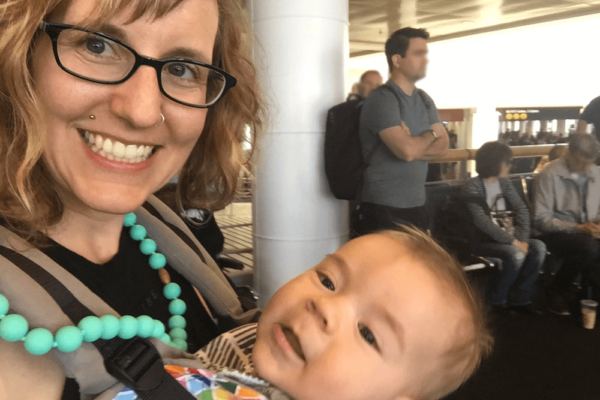Navigating Sleep Regressions in Your Little One’s Developmental Journey
I once worked with a family whose child, an eccentric 18-month-old, was learning a new song. They told me that every night for three nights in a row, their child would wake up in the middle of the night and belt out her new song. While the parents were simultaneously sleep-deprived and charmed by this new night routine, they stuck with their night wake-up strategies, and their child quickly returned to sleeping through the night. This was a humorous reminder for me that sleep regressions aren’t just tied to milestones but can also accompany any new skill, or song.
Sleep regressions are a common challenge that parents face as their infants and toddlers grow and develop. While there are common sleep regression ages, many people don’t know that regressions can happen at any time. Any new skill can trigger sleep regressions! Just like the child waking up to practice her new song, the world is an exciting place, and your little one is excited to practice their new skills (many times in the middle of the night). These are exciting changes, however, they can disrupt sleep.
Let’s explore sleep regressions and how to handle them:

Understanding Sleep Regressions
Sleep regressions refer to periods when a baby or toddler who has been sleeping well suddenly starts to experience difficulties in falling asleep or staying asleep. These regressions can be influenced by various factors, including changes in habits, environmental shifts, or developmental milestones.
Cognitive Developmental Leaps and Sleep Regressions
One significant cause of sleep regressions is cognitive developmental leaps. As your little one reaches new milestones in their cognitive development, their sleep patterns may be disrupted. When faced with such regressions, it’s essential to approach them with patience and understanding.
CDC first year milestones
In the first year, babies learn to focus their vision, reach out, explore, and learn about the things that are around them. Cognitive, or brain development means the learning process of memory, language, thinking, and reasoning. Learning language is more than making sounds (“babble”), or saying “ma-ma” and “da-da”. Listening, understanding, and knowing the names of people and things are all a part of language development. During this stage, babies also are developing bonds of love and trust with their parents and others as part of social and emotional development. The way parents cuddle, hold, and play with their baby will set the basis for how they will interact with them and others. See more here.
Duration of Sleep Regressions
Typically, sleep regressions last for 1-2 weeks. However, if you find that your child’s sleep troubles persist beyond this timeframe, it might indicate the formation of a new habit. In such cases, it’s time to address and adjust any habits that might be contributing to prolonged sleep disruptions.
What to Do During Cognitive Developmental Sleep Regressions
Practice new skill in the day
Encourage and support your child in practicing the new skill they’ve acquired, in the day, and a lot! This will help them feel confident in their new skill and less likely to seek additional practice at night. For example, if your child is practicing standing up, look for safe places for them to practice around the house or neighborhood. Play music to encourage this up and down motion.
Celebrate change
Acknowledge and celebrate your child’s developmental milestones. Your baby is growing, developing and adapting to this world, how exciting! You are doing a great job helping them meet their milestones.
Keep routines consistent
Consistency is key during sleep regressions. Maintain regular bedtime routines and responses to help your child understand that, despite the changes, a sense of security and predictability remains intact.
Typical Sleep Regression Ages
While sleep regressions can occur at various ages, there are specific milestones that often coincide with these challenging periods. The most common ages for sleep regressions include:
– 4 months
– 6 months
– 8 months
– 18 months
– 2 years
*Note on timing*
Many parents don’t realize that their child is going through a sleep regression because they often occur a few weeks earlier or later than expected, and are usually not right on time. For example, the 2-year sleep regression can occur at 18 months or 2.5 years. So parents misunderstand and think it’s something else, adding to the challenge of navigating their child’s sleep patterns.
Navigating sleep regressions can be a testing time for both parents and children. Understanding the potential causes, especially when linked to cognitive developmental leaps, empowers parents to respond effectively. By practicing the new skill, celebrating the change, and maintaining consistent routines, parents can help ease their little ones through these temporary disruptions in sleep patterns. Patience and flexibility are key as you support your child through these developmental leaps and ensure they enjoy restful nights once again. And remember, sleep regressions are temporary! Unless new habits are formed, your child will return to their normal sleep pattern again after a week or two.
Looking for sleep coaching? Check out our offerings here.





Comments